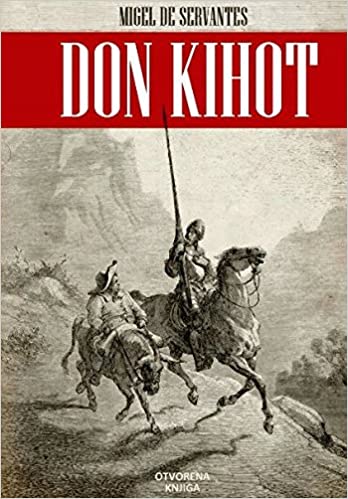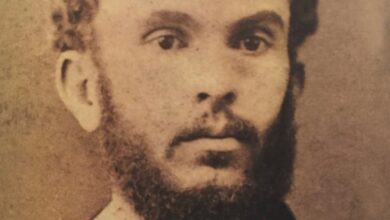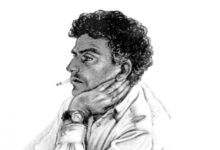Don Quixote of Mancha by Miguel De Cervantes Saavedra

Don Kishoti i Mançës nga Miguel De Cervantes Saavedr

On the book
… Don Quixote’s journey is not a space journey, but part of humanity’s inner journey. Don Quixote’s journey takes place at a time of great travel, such as the most famous and sensational journey in human history: the discovery of America. There can be no, it is impossible for there to be a greater discovery in history than this. The world, the earth, the terrestrial globe doubled. But something surprising happened: this great discovery left almost no trace in world literature. That is, it did not enrich its pages.
And yet, the journey of a Moroccan from one village of Spain to another village of Spain, a journey which had no point of importance to mankind, which brought him nothing, and which, perhaps, did not even happen at all, gives him humanity one of the greatest literary masterpieces. Is this a contradiction or is it in the logic of things? I believe that is not the contradiction.
Always, when discoveries have taken place in the world, great discoveries, the idea has been laid that these discoveries would transform literature. The latest are travel, cosmic discoveries and especially the fact that man has stepped on the Moon.
For many people poetry was coming to an end in the world, because the Moon, one of the inspirers of poetry, was already losing the mystery, as it was being trampled by man. We know this did not happen. And yet, over time, many years have passed, Don Quixote’s inner journey belongs to this secret calendar.
It has therefore influenced world literature more than the invention of the locomotive, more than the discoveries of Christopher Columbus, more than spaceships. Though it must be said that this great character of human history has not often made vivid incursions into human life. The life of this character is twofold: he is at the same time part of the inner turmoil of humanity, but also of his outer life.
While Odysseus’ adventure takes place on earth, underground, Dante’s mainly in the afterlife, Don Quixote’s journey takes place in an intermediate zone, a turbulent zone, created by folly, which is neither present nor present. andejme.
The great writers, as driven by the old vocation, have often returned to this itinerary. Not only Ulysses Joyce, the ordinary Irishman Leopold Blum, experiences the ten-year adventure of Odysseus within a day in June 1904, in the city of Dublin, but, according to a new interpretation, Nikolai Gogol’s masterpiece “Dead Souls” is not but a similar sisterhood of the Dantean poem, with the only difference being that, as its hero descends from the world of the living to Hell, that of Gogol emerges from Hell wrapped in a girdle, to gather souls in the frozen Russian steppes.
And since Gogol’s Russia is utterly grotesque, the devil’s pilgrimage is at once reminiscent of that of the Spanish hidalgo. Such a breakdown, which puts the “Dead Souls” between Dante and Cervantes, still unaccepted by Russian critics, is likely to remain a beautiful fantasy of Nabokov, a fantasy that Nabokov himself must have drawn from a famous letter of Pushkin.
However, even as such, as a fantasy, he will have life. Like the fantasy of the Balkan elders about Cervantes’ place of imprisonment. Like many things in the world of letters. In such sparks of thought, or in such folklore are often surprisingly different truths, from those which transcend the established order of things.
Creating the legend of the distant and unknown genius, the Balkan elders captured the essence of the character: his imprisonment. There are many who insist that it was in prison, in that abnormal environment of life, that “Don Quixote” was first fermented.
Half a century ago, the Spaniard Salvador de Madariaga, wrote that in prison Cervantes experienced deeply what it means that “under the guise of a slave you can be king”. Madariaga begs the question if “the key to his intimate biography, is not the fact that the day he was released from prison, he gained freedom but lost the sense of sovereign?”.
Madariaga is credible when he says that Cervantes’s dualism in prison is the beginning of Don Quixote’s duality, but it is difficult to be so when he writes that with his release from prison the genius fell into moral slavery. After all, Don Quixote, his freedom, of Spain and of the world, he did not write in prison, but outside of it.
When illiterate Balkan elders insisted on making a rebuke in Cervantes’ biography, there is a danger that, due to the notoriety of today’s Balkans, this would be taken as their next folly. In this peninsula, as much as the kidnappings of sheep and meadows, the appropriations of epics, heroes or writers are known.
To free the elders from such reproach, we must remember that their temptation, however, does not involve a similar effort. This is a prison. So for a crime. The other question, why this insistence on taking on a shame, can only be given an indirect answer.
Balkan elders, though illiterate, have always known and still know something about what can be called paraliteracy. They know well the journeys to the other world, the affairs of folly, the rivers from which one enters or leaves hell, and finally Greece, which is only a hundred miles away. The supernatural tells them that that distant, chained writer was on the shores of the Balkans and not Africa.
There have been many similar stories in the Balkans. In the twentieth century the history of prisons and internments was repeated by most Balkan writers: Croats, Serbs, Albanians, Montenegrins, Slovenes, Bulgarians, Macedonians, Greeks and Romanians. And it was no coincidence that, in all this communist totalitarian space, the old legend of handcuffed genius was remembered again.
About the author
Miguel de Cervantes Saaverda was born in Alcalá – de – Hinares, Spain, in 1547. He spent his childhood and adolescence in Valladolid, Salamanca, Seville and Madrid. In Madrid, in 1569, Juan Lòpez included in his collection a collection of poems by Cervantes, defining the author as “our dear and dear disciple”. It is the only evidence that exists for his education in contact with humanistic environments.
As early as 1568, Cervantes traveled to Italy after Julio Aquaviva: he fled Spain to escape punishment with amputation of his right hand and ten years in exile for injuring someone named Antonio de Segura. Enlisted in the army he took part in the battle of Lapantos in 1571. In 1572 he took part in the naval expedition to Navarino.
In 1573 he returned to Italy. Two years later, in Naples he takes the ship “Sol” to Spain; the ship is attacked by three Turkish pirate ships near the Rhone delta; Cervantes is captured and sentenced in Algiers, where he is sold as a slave and imprisoned for five years. On October 24, 1580 he was released and left for Spain. In 1584 he married Catalina de Salazar y Palacios. Until 1600 he lived in Seville. Involved in the bankruptcy of a banker, which led to his imprisonment in Seville in 1602.
After leaving the cell, he settled in Valadolid. Unjustly suspected of killing a knight, he is imprisoned again for a short time, while his two sisters and daughter, Isabel, are rumored to have questionable morals. Transferred to Madrid to the court of Philip ll. There he wrote most and the highest quality of his extensive creativity. Died in Madrid on 23 April 1616.






